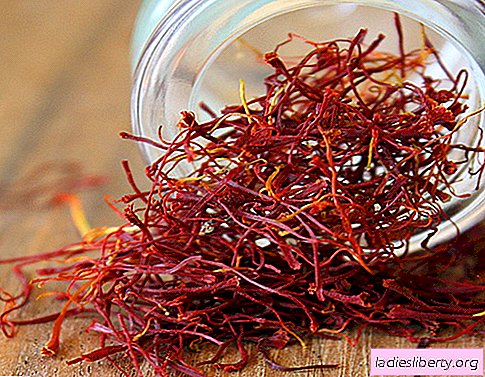
The first commercially successful instant coffee is called Nescafe. It was released by NestleGroup in Brazil in 1938. According to Nestle, 3,600 Nescafe cups are drunk every second around the world. Instant coffee is the "embodiment of horror" for coffee lovers, because it contains many times more harmful substances than natural.
Instant coffee is a “quicker” product - hence its success. To make powder, you need a spoon, a cup and boiling water. But what are the health consequences of coffee bean substitute?
Increased Acrylamide in Instant Coffee
When processing instant coffee, acrylamide is additionally formed, which has already been obtained during the roasting process. Powder per unit weight contains more acrylamide than fried ground beans. Acrylamide is a neurotoxin and carcinogen.
While roasted coffee contains only about 180 mcg / kg of acrylamide, in instant coffee it is almost twice as much - 360 mcg / kg.
However, almost all consumers use less soluble powder than on the same cup of real coffee. In all clinical trials, the content of acrylamide in instant and filtered coffee per cup was almost the same.
Less Antioxidants and Caffeine
The content of antioxidants, anticonvulsants, antidiabetic agents and quinine are the reasons for the usefulness of coffee. However, many of these beneficial substances are lost during the extraction and drying of instant coffee.
The content of magnesium and potassium is significantly reduced during the processing of coffee.
Also, the caffeine content in instant coffee is much lower than in ground roasted beans.
Poor coffee is used in production.
For the production of instant coffee, cheaper Robusta beans are mainly used to reliably meet demand and increase profits. However, the price difference between the types of beans is not as great as before.
Small producers add arabica beans to their products.
100% instant coffee "Arabica" is still rare, but it exists.
The product is definitely recommended despite a slightly higher price.
Where do you drink instant coffee most often?
India and China are huge markets where instant coffee consumption is growing at a breakneck pace. South India, in particular, grows the incomparably delicious Kaapi coffee.
In India, the tendency to instant coffee is most likely due to the adoption of Western traditions.
Australia is the world leader in instant coffee consumption. More than 75% of the coffee sold there and in New Zealand belongs to the "fast variety". In Eastern Europe, this proportion is still about 50%, in Western - only 25%. In Italy or Austria, instant coffee is almost never consumed.
Instant coffee - nothing compared to hot water?
25 years ago, the international cancer research agency IARC classified coffee as a possible cause of cancer. At that time, she had "limited evidence" of bladder cancer.
Less good news from IARC for coffee connoisseurs: drinking any beverage with a temperature above 65 degrees Celsius promotes the formation of esophageal cancer.
In earlier studies, including in China, it was suspected that hot drinks cause cancer.
In 2016, a meta-analysis by Canadian scientists confirmed the harmful effects of hot foods on the esophagus.
Is instant coffee good?
Studies by the Institute of Food Chemistry show that most cancers have no connection with coffee consumption. According to WHO, the risk of developing bladder cancer before reaching 75 years of age for Russians is 2.6%.
Numerous studies have shown that coffee can even protect the heart. In the past, scientists suspected the opposite.
Now it turns out that people who drink 3-5 cups (regular coffee) per day have a lower risk of developing atherosclerosis. The risk of developing type 2 diabetes is also lower among coffee lovers.
Instant coffee in moderate doses (2-3 cups, 2 teaspoons each) will not bring significant harm to health. Due to the high content of caffeine and polyphenols in "real" coffee, it is recommended to refuse soluble powder.











